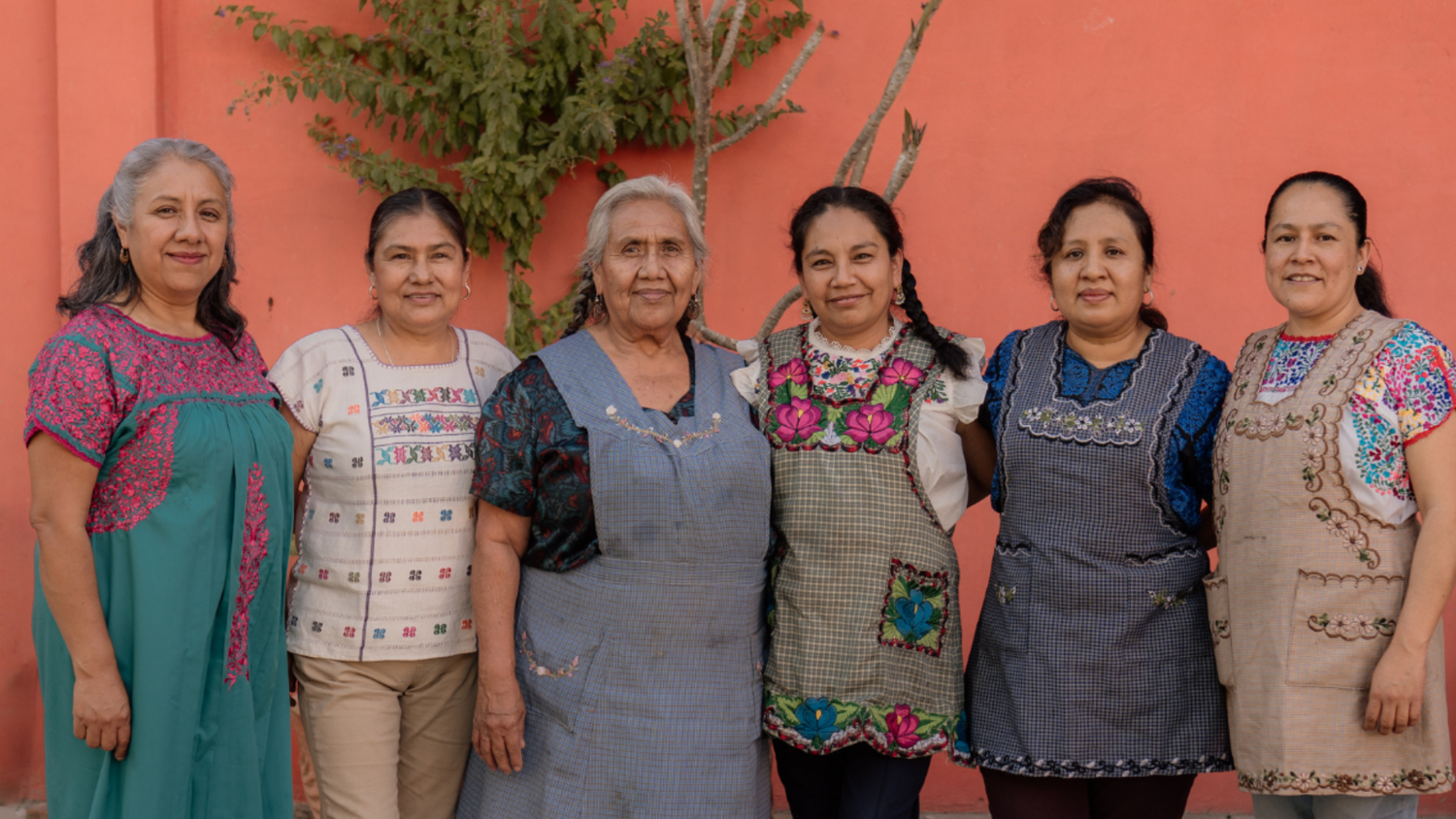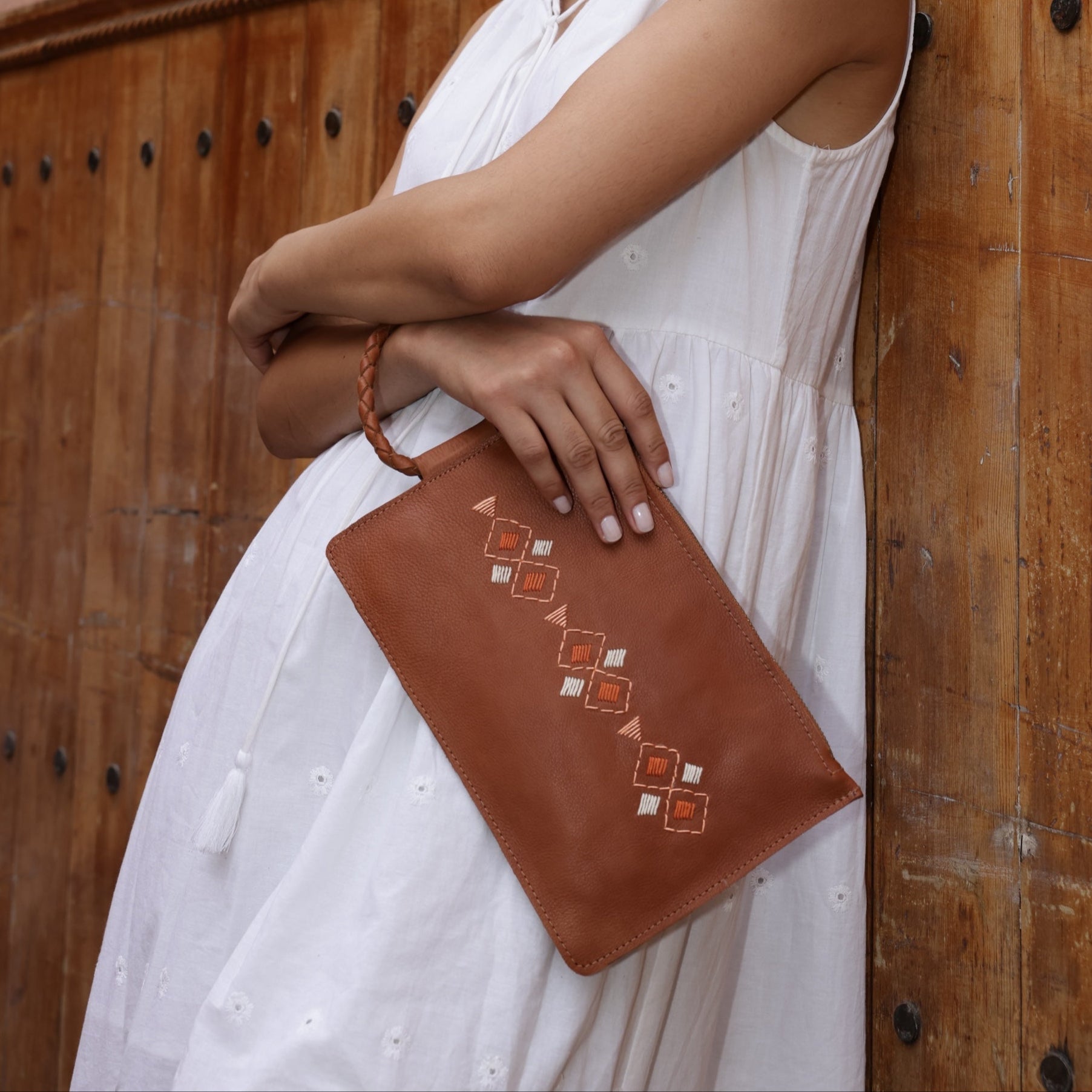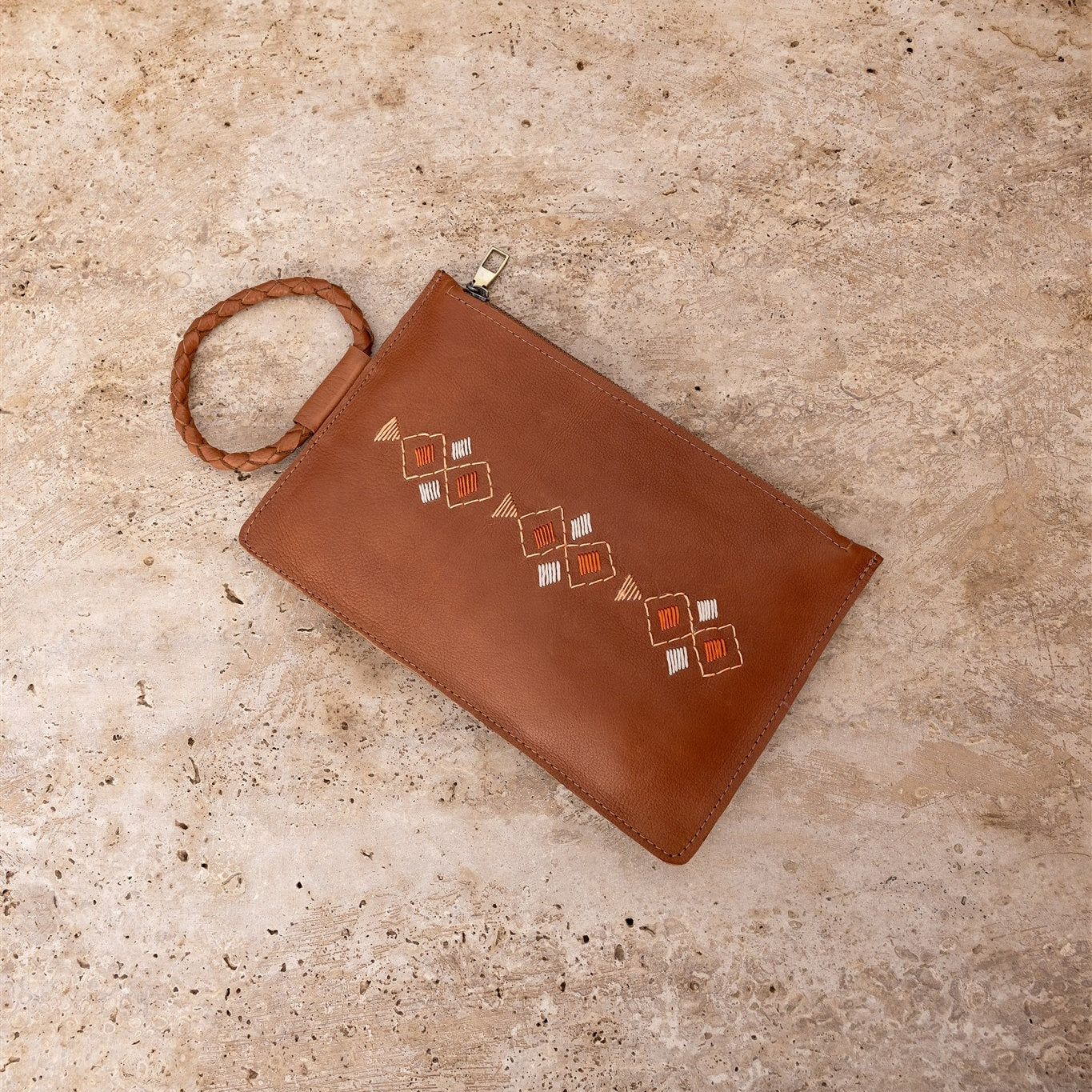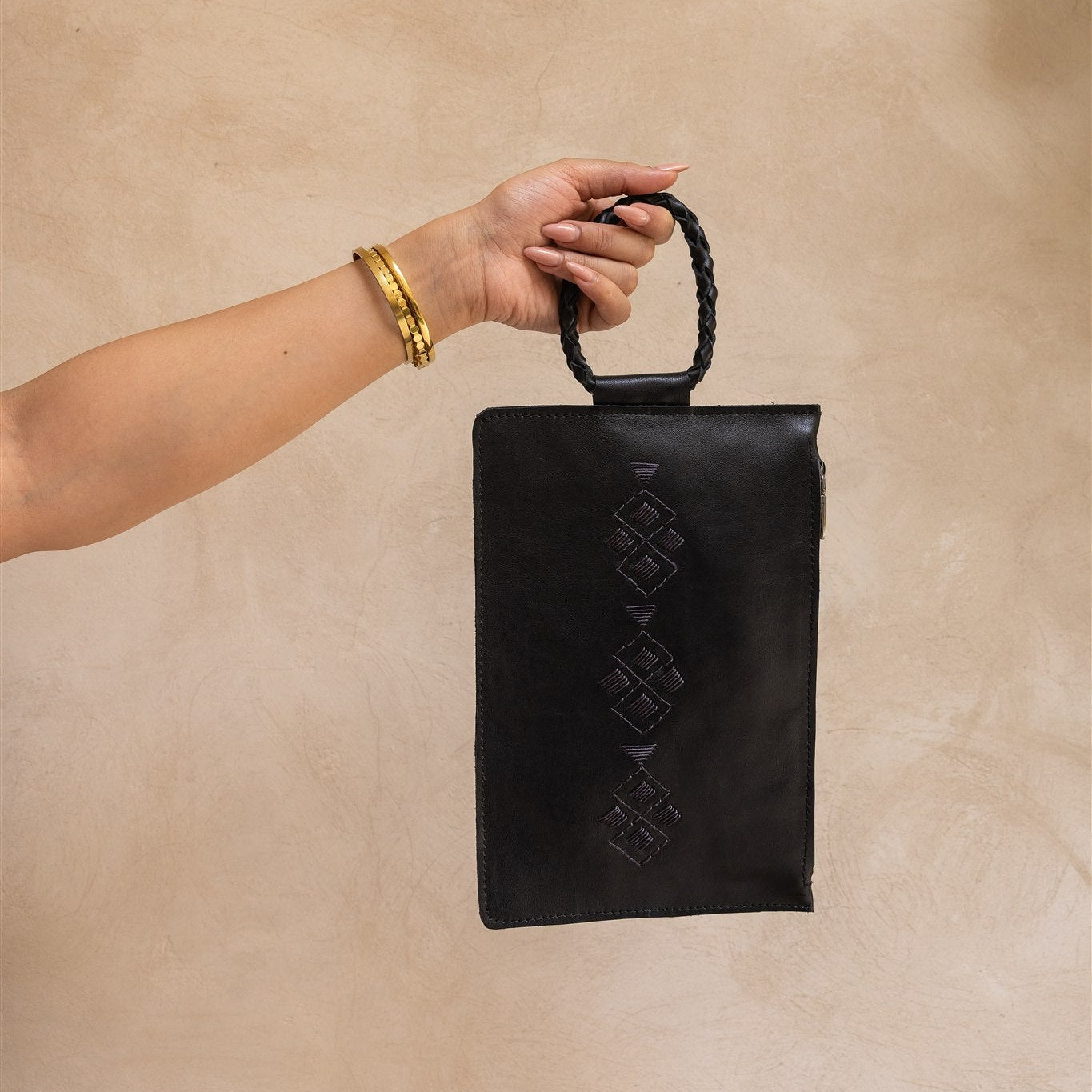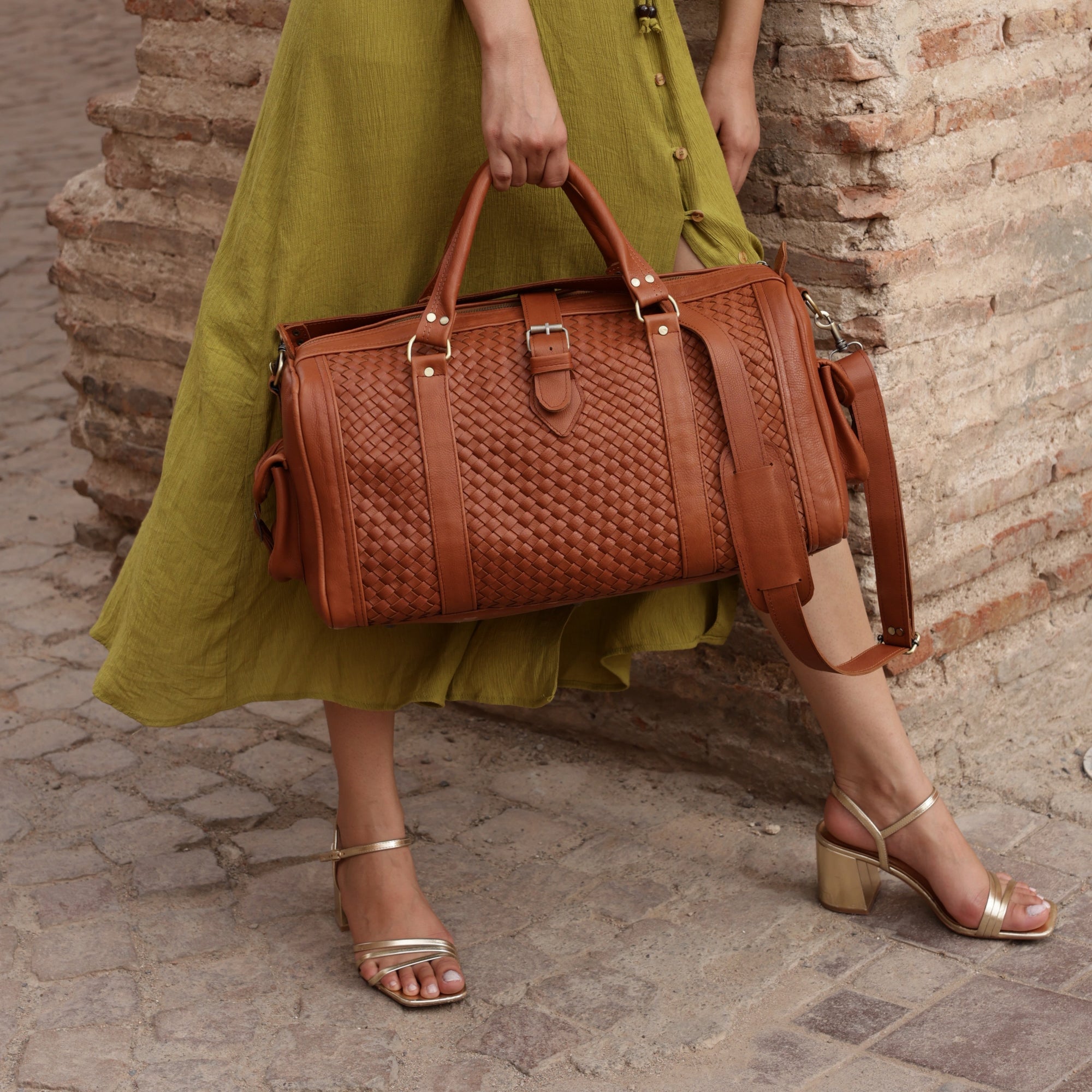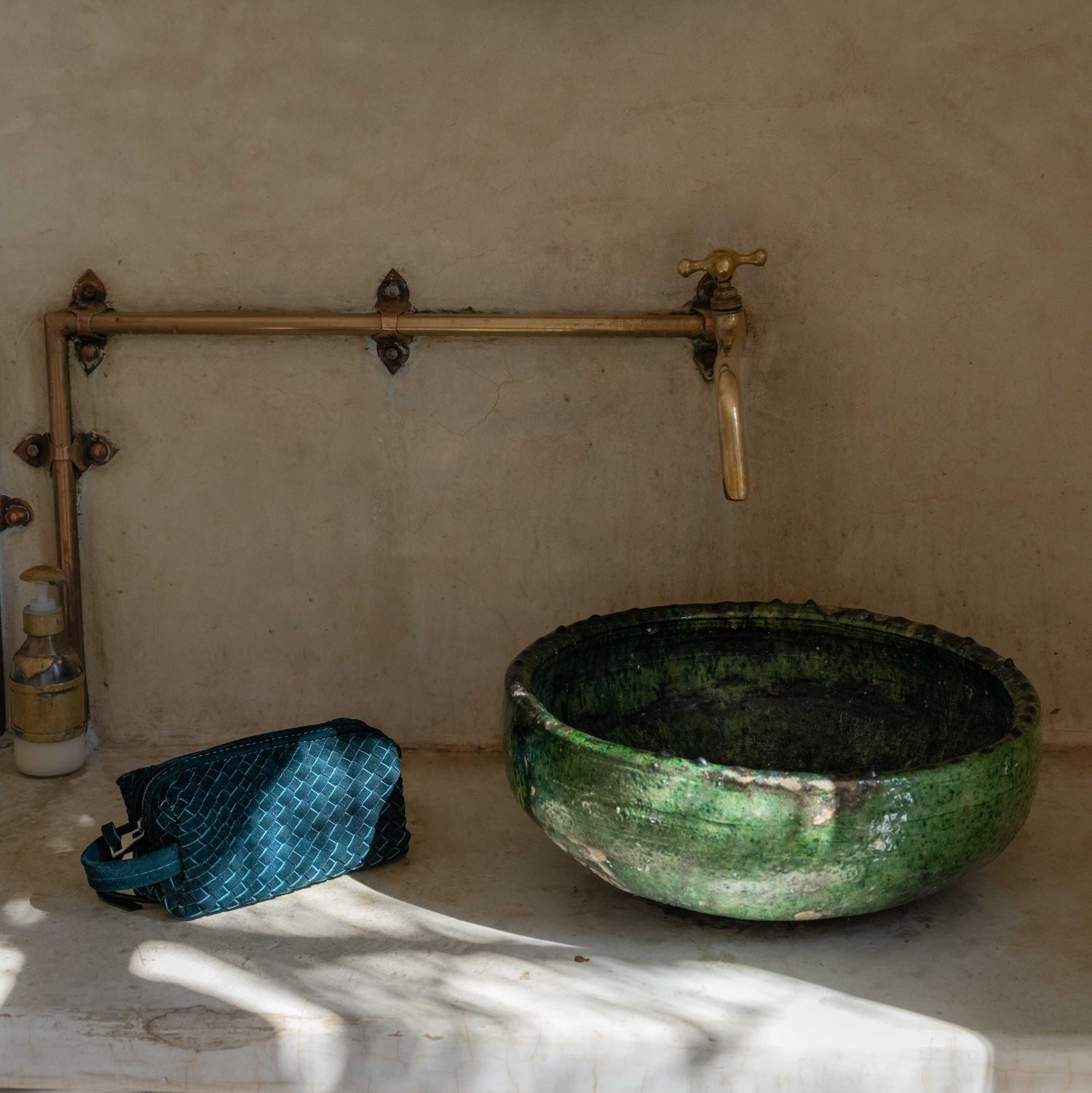Joining the Fair Trade Federation
We’re honored to share that AMASOUK is now officially a member of the Fair Trade Federation—a network of brands committed to equitable, transparent, and community-centered trade. While we have always worked according to fair trade practices, becoming FTF-verified adds an important layer of accountability, peer review, and shared commitment.
We chose to apply for verification because we believe that integrity should not rely on trust alone. Independent oversight, community, and transparency matter—especially when working across cultures, continents, and lived histories. This membership affirms what has guided us from the beginning: a belief that beautiful design means little if it is not rooted in care for the people who make it.
Artisan craft does not emerge from abstraction—it comes from people, place, memory, and practice. To understand the value of a handcrafted bag, we must understand the lives and lineages that shape it. Fair trade is not simply a label for us; it is a framework for sustaining whole ecosystems of cultural continuity and economic possibility.

The Cost of Convenience: What Fast Fashion Leaves Behind
Fast fashion asks us to prioritize speed and novelty over connection—but the true cost is carried by the makers and the earth itself. When garments are produced in factory systems that rely on underpaid labor, unsafe working conditions, and relentless output, people’s lives are compressed into margins of efficiency. Artisans are pushed out by mass manufacturing, and factory workers—often women and girls—are asked to trade dignity for survival.
On an ecological level, disposable fashion contributes to toxic dye runoff, overproduction, and textile waste that fills landfills and waterways across the globe. What is marketed as “effortless” comes at the expense of the very communities and environments that give craft its origin.
Fair trade is the antithesis of this. It invests in sustainable livelihoods, safe working conditions, and long-term independence. It protects cultural knowledge from being replaced by imitation. Its ripple effects are profound: children able to stay in school, women gain financial autonomy and leadership roles, and entire communities gain the means to define their future on their own terms.

Teotitlán del Valle, Oaxaca: The Santiago Family
In the Zapotec weaving village of Teotitlán del Valle, the Santiago family works collaboratively in a home workshop filled with the sound of treadles and shared conversation. Patterns here are not merely designs—they are stories of the landscape: mountains, fields, rainfall, dusk. Each woven piece carries the memory of place.
Fair trade partnerships allow the Santiago family to run their workshop year-round instead of season-to-season. It enables children to stay in school longer, elders to teach at a pace that honors skill and age, and the weaving tradition to grow instead of diminish. Continuity becomes not just something hoped for, but something feasible, steady, and lived.

Marrakech, Morocco: Collaboration as Craft
In Marrakech, craftsmanship is collective. A single bag may involve leather cutters, dyers, braiders, stitchers, and embroiderers—each contributing a specialized skill. Artisans that partner with fair trade brands like AMASOUK have carved out avenues for leadership and financial independence inside a system where women have historically had limited access to economic autonomy.
Fair trade ensures fair wages, predictable income, and the ability to lead and train others. This is how cultural craft evolves without being diluted: through collaboration that honors skill—and through women who become anchors of community resilience.

Himeji, Japan: Precision, Intent, and the Poetics of Restraint
In Himeji, leather artisans shape bags using origami-inspired folds. The work is slow, deliberate, and meditative—a philosophy of design rooted in restraint and respect for material. These ateliers are made up of young makers that are bringing the craft back to life, inspired by the cultural artisan history of their region.
Fair trade supports their ability to remain independent in an era where mechanized factories increasingly replace handcraft. The result is not mere nostalgia, but the preservation of knowledge that would otherwise disappear.

What Fair Trade Makes Possible
Fair trade ensures that artisans are paid fairly for the full value of their skill—not just their time. It creates safe and stable working environments, supports long-term partnerships instead of quick transactions, and ensures that artisans have agency in pricing and creative direction.
Most importantly, fair trade keeps cultural craft alive—not frozen in time or reinvented for profit, but carried forward with dignity, continuity, and choice.

Carrying Craft Forward
When you carry an AMASOUK piece, you’re not just carrying a bag. You are carrying the lived geometry of Oaxaca, the layered collaboration of Marrakech, and the quiet mastery of Himeji.
You are participating in the continuity of culture—and the future of the hands that make it. We think that’s pretty special, and we appreciate the part you play in helping us make conscious commerce an agent of positive change.
Stay tuned as we share more about our new journey with the Fair Trade Federation!
In the meantime, you can get to know our extraordinary artisan partners here.


